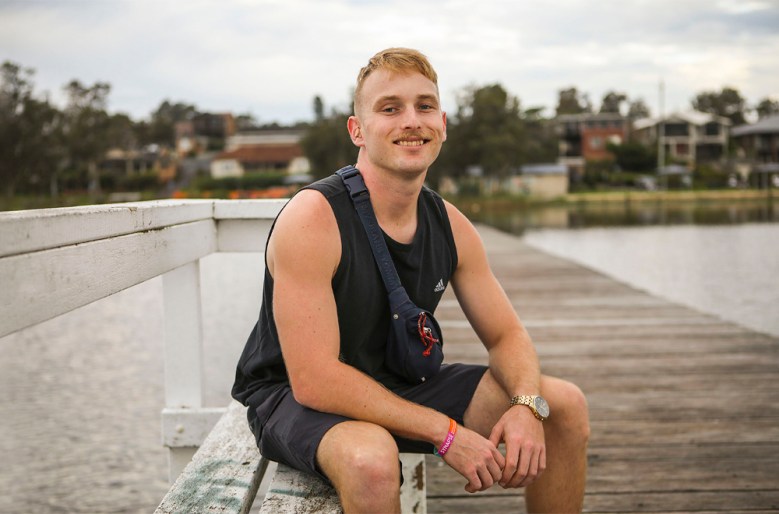The Social Brain Toolkit is a set of online tools developed to help people with brain injury and their support networks to communicate, face to face or online, after a brain injury.
It comprises three modules: interact-ABI-lity: is a free, short online 2-hour course for family, friends or professionals about how to communicate with people with brain injury; social-ABI-lity: is also a free short online course for people with brain injury about using social media safely and successfully, and the first clinically available resource targeting successful social media participation after brain injury; and convers-ABI-lity: an online platform comprising 10 sessions for people with brain injury and their communication partners to complete a conversation skills training program together, supported by a speech pathologist.
Jack McBride, pictured, who suffered a traumatic brain injury after colliding with an SUV riding to work on his motorbike, recently took the online course in ‘convers-ABI-lity’ at Sydney University, with his mother. “It has helped us work together better, to communicate more collaboratively,” Jack said.
Initially he was unable to talk, walk or eat, but has slowly regained most of his pre-accident abilities. However, he has ongoing problems including short-term memory deficits.
“I still see an occupational therapist who helps me with time management and sorting out my preparation for events. Mum and I also see a neuropsychologist who helps me cope and mum to see how far I’ve come. I try and get one percent better each day. If I can do that then I’m winning.”
He meditates and does yoga daily and tries to learn something from every person he meets.
Last year Jack got his first paid job since his accident, with Coast and Country Primary Care who provide mental health services on the NSW Central Coast. It involves him providing support to people with brain injury or mental health issues.
“I have to pay back the people who had faith in me and show them that their time wasn’t wasted. And I’m just starting which is the best thing about being the age I am. I want to take it forward to show people what they can do, and what I can do, to make the world a better place,” he said.
He told F2L that the course takes a holistic approach, that covered learning how to communicate effectively. “Whatever might have happened in your life sometimes means you lose the ability to communicate, so it can come as a shock to be told you have to work on your communication skills.
“I was unable to communicate the thoughts in my head into words and while I still struggle sometimes my articulation skills have improved and I have learnt to stand up for myself,” he said.
“It’s a new world learning to be disabled, you are not the person you used to be, so you have to figure out for yourself what is in your head before you can express it, and also I am not alone, others have gone through this journey.”
He did the 10 Zoom sessions over three months, with sessions up to two hours.
“When you are told you have a brain injury like mine then you have nothing to lose by trying something like this. There are a lot of things you cannot do or try to do when you have a disability, but this course is something you can try.”
Jack is also on the cannabis prescription program which he said has had a beneficial effect, helping him to relax and stay clear-headed.
The Social Brain Toolkit is a collaboration between the University of Sydney, the University of Technology Sydney, Brain Injury Australia and Changineers. It was funded by a grant from iCare. Find out more on the toolkit at: https://abi-communication-lab.sydney.edu.au/social-brain-toolkit/

